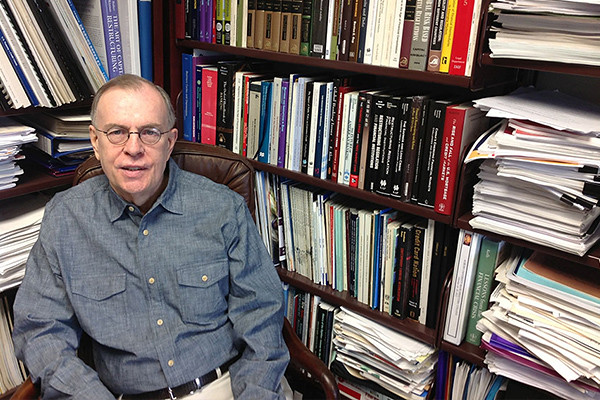Auburn University finance scholar says stock market decline is not bubble bursting, but is due to higher interest rates
Article body
Auburn University finance scholar James Barth says the stock market drop is not a bubble bursting, but is due mainly to the Federal Reserve’s decision to raise interest rates as a way to combat inflation. He says investors should determine their individual investment strategy based on age.
What are the key factors in the stock market drop this year?
The main reason for the decline in the stock market this year is the Federal Reserve’s decision to raise interest rates. The Federal Reserve is now pursuing a tighter monetary policy to reduce inflation. This policy change is a difficult task because it will lead to slower economic growth and higher unemployment if it tightens too much. If it tightens too little, inflation will not be sufficiently reduced. The higher interest rates and uncertainty about the economic outlook make stocks less attractive. Some stocks, moreover, have declined as customers have shown less interest in products that were popular during the pandemic but less so as they revert to pre-pandemic behavior.
Is the stock bubble bursting?
A bubble occurs when stock prices rise only because people believe prices will be higher than they are today. The decline in stock prices is not because a bubble is bursting but rather because fundamental factors have changed. For example, a housing bubble burst some years ago that contributed to the Great Recession.
What is the effect of the interest rate increase?
Higher interest rates typically benefit savers but are more costly for borrowers. For example, people wanting to buy homes are confronting higher interest rates when applying for mortgages. Also, it is important to realize that longer-term interest rates typically incorporate an inflation premium, which means that higher inflation rates can contribute to higher interest rates.
What should investors do?
Younger investors have more years ahead for the market to recover than older investors. The data indicate stock prices go up over long periods with periodic fluctuations now and then. This situation means older investors may prefer a portfolio of safer assets given their life expectancies, while younger investors may prefer a risker portfolio based on the belief that a recovery will occur in the not too distance future given their life expectancies.
Does everything hinge on gas prices?
Those who own and drive electric vehicles are less concerned about higher gas prices than those driving gas guzzlers. However, higher gas prices lead to higher prices of other products due to pass-through costs.
What is causing higher interest rates and higher prices, including gas prices?
Mainly, bad monetary and fiscal policies implemented by policymakers in Washington, D.C.
About James Barth:
James Barth is the Lowder Eminent Scholar in Finance at Auburn’s Harbert College of Business, a Senior Fellow at the Milken Institute and a Fellow at the Wharton Financial Institutions Center. He has been a visiting scholar at the U.S. Congressional Budget Office, Federal Reserve Bank of Atlanta, Office of the Comptroller of the Currency and the World Bank.
To arrange an interview with our expert, please contact Charles Martin in Auburn Advancement Communications at marticd@auburn.edu.
Auburn University is a nationally ranked land grant institution recognized for its commitment to world-class scholarship, interdisciplinary research with an elite, top-tier Carnegie R1 classification, life-changing outreach with Carnegie’s Community Engagement designation and an undergraduate education experience second to none. Auburn is home to more than 30,000 students, and its faculty and research partners collaborate to develop and deliver meaningful scholarship, science and technology-based advancements that meet pressing regional, national and global needs. Auburn’s commitment to active student engagement, professional success and public/private partnership drives a growing reputation for outreach and extension that delivers broad economic, health and societal impact.





